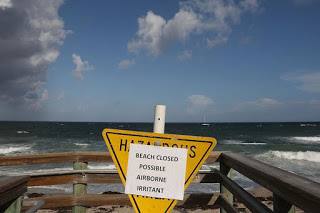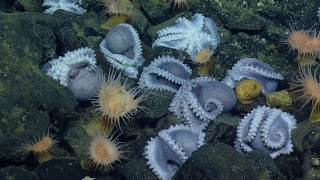Boiling Oceans, Our Ocean Global Summit, Florida’s Red Tide, Largest Octopus Nursery Discovery, Canada Proposes Shark Fin Ban, Palau To Ban Sunscreen, Humanity Wipes Out 60% Species Since 70’s, Massive Canadian Glaciers Melting And More…
 Multiple news sources have repeatedly chimed in about this issue. It appears the world has seriously underestimated the amount of heat soaked up by our oceans over the past 25 years, researchers say. Their study suggests that the seas have absorbed 60% more than previously thought. They say it means the Earth is more sensitive to fossil fuel emissions than estimated. This could make it much more difficult to keep global warming within safe levels this century. According to the last major assessment by the Intergovernmental Panel on Climate Change (IPCC), the world’s oceans have taken up over 90% of the excess heat trapped by greenhouse gases.
Multiple news sources have repeatedly chimed in about this issue. It appears the world has seriously underestimated the amount of heat soaked up by our oceans over the past 25 years, researchers say. Their study suggests that the seas have absorbed 60% more than previously thought. They say it means the Earth is more sensitive to fossil fuel emissions than estimated. This could make it much more difficult to keep global warming within safe levels this century. According to the last major assessment by the Intergovernmental Panel on Climate Change (IPCC), the world’s oceans have taken up over 90% of the excess heat trapped by greenhouse gases.2. Florida’s Algae Blame Sticks to ‘Red-Tide Rick’ in Senate Race
They were soon joined by a two-man counter-protest: a father and son waving a flag bearing Trump’s name, yelling: “Red tide is naturally occurring!”
3. Pioneering Global Framework for Sustainable Ocean Finance Launched at Our Ocean Global Summit
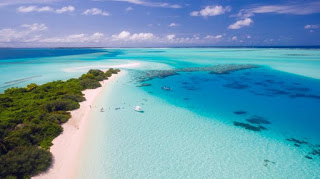 Bali, 29 October 2018 – The world’s first global framework to finance a sustainable ocean economy was launched at the Our Ocean conference today. The Sustainable Blue Economy Finance Principles were developed by the European Commission, WWF, World Resources Institute (WRI), and the European Investment Bank (EIB). Started as a commitment by a dozen financial institutions and key stakeholders just a year ago, they are now set to become the gold standard to invest in the ocean economy—the “blue economy”—in a sustainable way.
Bali, 29 October 2018 – The world’s first global framework to finance a sustainable ocean economy was launched at the Our Ocean conference today. The Sustainable Blue Economy Finance Principles were developed by the European Commission, WWF, World Resources Institute (WRI), and the European Investment Bank (EIB). Started as a commitment by a dozen financial institutions and key stakeholders just a year ago, they are now set to become the gold standard to invest in the ocean economy—the “blue economy”—in a sustainable way.
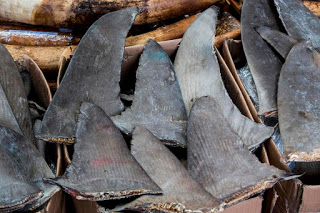 A proposed federal law to ban the importation and exportation of a controversial delicacy has sweeping support from the Senate. This week, Bill S238 passed the third reading in the Senate and now it will move onto the House of Commons for debate. “We definitely feel it is a positive step,” said Cecile Yuen, a member of Vancouver-based group Shark Truth. The non-profit aims to educate people about the issues of harvesting shark fin, where the lucrative limb is sliced off and the predator is thrown back into the water to drown.
A proposed federal law to ban the importation and exportation of a controversial delicacy has sweeping support from the Senate. This week, Bill S238 passed the third reading in the Senate and now it will move onto the House of Commons for debate. “We definitely feel it is a positive step,” said Cecile Yuen, a member of Vancouver-based group Shark Truth. The non-profit aims to educate people about the issues of harvesting shark fin, where the lucrative limb is sliced off and the predator is thrown back into the water to drown.5. Coral: Palau to Ban Sunscreen Products to Protect Reefs
 Palau is set to become the first country to impose a widespread ban on sunscreen in an effort to protect its vulnerable coral reefs. The government has signed a law that restricts the sale and use of sunscreen and skincare products that contain a list of ten different chemicals. Researchers believe that these ingredients are highly toxic to marine life, and can make coral more susceptible to bleaching. The ban comes into force in 2020. In a statement, Palau’s President Tommy Remengesau said the ban, which would see fines of $1,000 (£760) for retailers who violated the law, was timely.
Palau is set to become the first country to impose a widespread ban on sunscreen in an effort to protect its vulnerable coral reefs. The government has signed a law that restricts the sale and use of sunscreen and skincare products that contain a list of ten different chemicals. Researchers believe that these ingredients are highly toxic to marine life, and can make coral more susceptible to bleaching. The ban comes into force in 2020. In a statement, Palau’s President Tommy Remengesau said the ban, which would see fines of $1,000 (£760) for retailers who violated the law, was timely.
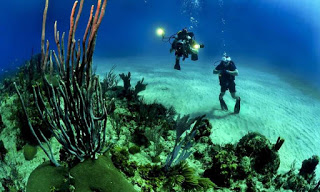 Today, Paul G. Allen Philanthropies and a consortium of partners, including Carnegie, unveiled the Allen Coral Atlas, a pioneering effort that uses high-resolution satellite imagery and advanced analytics to map and monitor the world’s coral reefs in unprecedented detail. At launch, the Allen Coral Atlas offers the highest-resolution, up-to-date global image of the world’s coral reefs ever captured, and the first detailed maps showing the composition and structure of five important reefs located throughout the world.
Today, Paul G. Allen Philanthropies and a consortium of partners, including Carnegie, unveiled the Allen Coral Atlas, a pioneering effort that uses high-resolution satellite imagery and advanced analytics to map and monitor the world’s coral reefs in unprecedented detail. At launch, the Allen Coral Atlas offers the highest-resolution, up-to-date global image of the world’s coral reefs ever captured, and the first detailed maps showing the composition and structure of five important reefs located throughout the world.
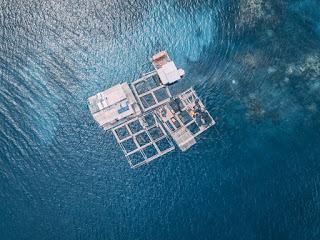 Humanity has wiped out 60% of mammals, birds, fish, and reptiles since 1970, leading the world’s foremost experts to warn that the annihilation of wildlife is now an emergency that threatens civilization. The new estimate of the massacre of wildlife is made in a major report produced by WWF and involving 59 scientists from across the globe. It finds that the vast and growing consumption of food and resources by the global population is destroying the web of life, billions of years in the making, upon which human society ultimately depends for clean air, water and everything else.
Humanity has wiped out 60% of mammals, birds, fish, and reptiles since 1970, leading the world’s foremost experts to warn that the annihilation of wildlife is now an emergency that threatens civilization. The new estimate of the massacre of wildlife is made in a major report produced by WWF and involving 59 scientists from across the globe. It finds that the vast and growing consumption of food and resources by the global population is destroying the web of life, billions of years in the making, upon which human society ultimately depends for clean air, water and everything else.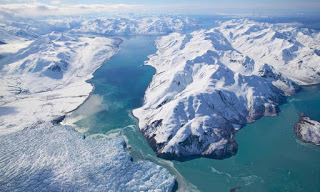 Scientists in Canada have warned that massive glaciers in the Yukon territory are shrinking even faster than would be expected from a warming climate – and bringing dramatic changes to the region. After a string of recent reports chronicling the demise of the ice fields, researchers hope that greater awareness will help the public better understand the rapid pace of climate change.
Scientists in Canada have warned that massive glaciers in the Yukon territory are shrinking even faster than would be expected from a warming climate – and bringing dramatic changes to the region. After a string of recent reports chronicling the demise of the ice fields, researchers hope that greater awareness will help the public better understand the rapid pace of climate change.———————————————–
10. World’s Largest Deep-Sea Octopus Nursery Discovered
Off the coast of Monterey, California, and some two miles below the surface of the Pacific Ocean, scientists piloting a remotely-operated submersible saw something no one has ever seen before. Octopuses. Hundreds of them. Huddled on a rocky outcrop at the base of an underwater mountain.
“We went down the eastern flank of this small hill, and that’s when—boom—we just started seeing pockets of dozens here, dozens there, dozens everywhere,” says Chad King, chief scientist on the Exploration Vessel Nautilus.

